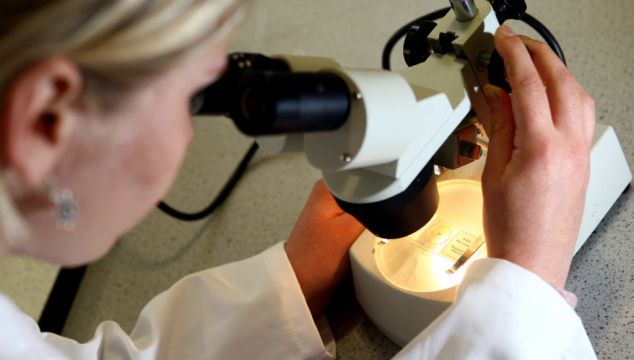A new vaccine has shown “promising” signs of being able to prevent relapse of specific types of pancreatic and bowel cancers for people who have previously had surgery.
Avoiding relapse could also help increase rates of survival, researchers say.
In the study, patients were given an experimental vaccine designed to target mutated KRAS – a common gene found in tumours, particularly in pancreatic and bowel (colorectal) cancers.
In phase one of the trial, 25 patients who were considered at high risk of relapse received a maximum of 10 doses of the ELI-002 vaccine targeted toward KRAS mutations.
According to the findings, the vaccine successfully mobilised a substantial number of T cells from the body’s immune system, targeting and combating lingering tumour cells post-surgery and chemotherapy.
Researchers believe this robust immune reaction holds the key to potentially safeguarding high-risk recurrence patients in the long term.
The study suggests there was a T cell (a type of white blood cell that is part of the immune system) response in 84% of all patients, and in 100% of those who received the highest dose.
T cell responses were predictive of reductions in tumour signs and they were associated with an 86% reduction in risk of relapse or death, the study found.
T cells act as killer cells, attacking cells which are carrying disease, or they can act as helper cells by supporting other white blood cells to produce antibodies.
The vaccine is an immunotherapy – a type of treatment which helps the immune system recognise cancer and kill it.
Principal investigator Shubham Pant, associate professor of gastrointestinal medical oncology, University of Texas MD Anderson Cancer Centre, said: “Patients who have undergone surgery for pancreatic cancer are still at risk for relapse of the disease, even after they finish chemotherapy.
“This is especially true for patients who are positive for circulating tumour DNA (ctDNA), which puts them at a higher risk for relapse.
“When these patients do relapse, the disease is not curable, so this is certainly an area of unmet need.”
He added: “It’s early, but we saw some promising results that this vaccine may help many of these patients avoid relapse, which could increase survival.
“It also showed a favourable safety profile, which is exciting.”
The most common side effects observed in the study, published in Nature Medicine, were fatigue, injection site reaction and muscle aches.
According to Pancreatic Cancer UK, KRAS mutations are the main driver of the disease and it is estimated almost 90% of pancreatic cancers are driven by KRAS mutations.
Currently, 10,500 people are diagnosed with pancreatic cancer annually in the UK, so based on this it is estimated that there are more than 9,000 people a year with KRAS-related pancreatic cancer.
However, less than 10% of patients diagnosed with pancreatic cancer are able to have surgery.
The 25 patients that were enrolled in the study faced a bleak outlook, according to doctors.
Despite undergoing surgery to remove the tumour and enduring rounds of chemotherapy, they remained at a high risk of relapse.







